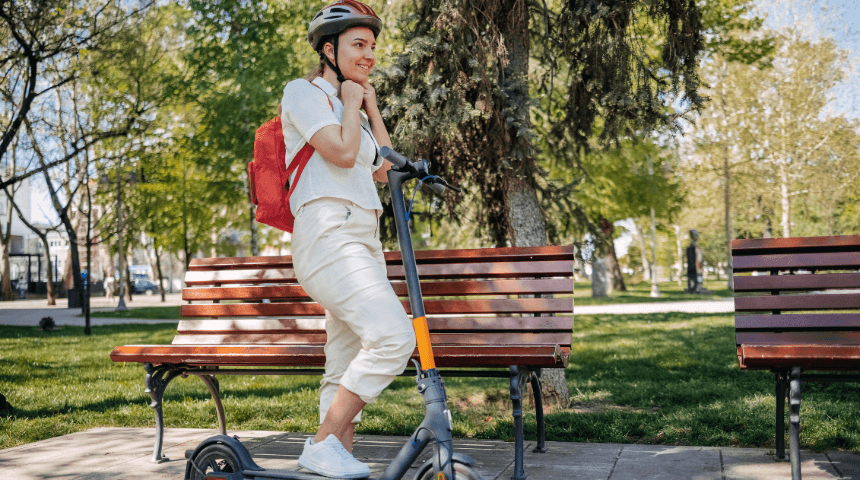6 Tips for Staying Safe (and Sane!) While Traveling with Kids
Traveling with children can make any trip memorable. But packing up the little ones and whisking them off to new places also can feel extremely daunting. The right preparation and adjustments, though, can help parents stay calm and in control during travel. Whether you’re taking a short road trip, flying across the country or hopping on board a cruise ship, just remember to have fun and be safe.
Planning a summer adventure for your family? Here are some tips for parents traveling with their children:
Take Care of Vaccinations Beforehand
Whether you’re headed to China, France, Jamaica or just the next state over, it’s important to check on the status of your children’s vaccinations. Children should be up-to-date on all vaccines recommended by the CDC for their age. If you’re unsure about their vaccination status, contact your pediatrician well ahead of time. If your family will be traveling internationally, check the CDC “Travelers’ Health” page first to see what precautions are required or recommended for the areas you’ll be visiting. Most vaccines should be carried at your child’s clinic, but there are some specialized vaccines that are only carried by travel clinics, such as the Orlando Health Travel Clinic.
Keep in mind that there may be special recommendations if you’re traveling to an area where there’s an outbreak of a particular disease, such as the Zika virus, yellow fever or measles. In that case, your child's pediatrician will be able to help you determine if your child will need additional vaccinations.
Be Prepared for Illness, Injury and Getting Lost
Family trips should be full of sightseeing, new experiences, great food and fun. Parents need to be prepared for possible issues, though, such as kids getting cuts, headaches or colds. Remember to pack a basic first-aid kit (think adhesive bandages and antibiotic ointment) as well as a sufficient amount of all prescription medications that you and your children take. If possible, bring a few extra doses in case one is lost. Also consider bringing along over-the-counter medications like acetaminophen, ibuprofen, diphenhydramine and hydrocortisone cream.
Whether your kids are teenagers or kindergarteners, it’s also vital to create a family emergency plan in case someone gets separated from the pack. For instance, if you're headed to the airport, make sure everyone knows the exact location to go and wait if they’re lost. Or, if you’re at the beach, pick a visible and safe place to meet, such as the lifeguard tower.
Take Extra Precautions for Kids with Chronic Illness or Special Needs
If you have a child with a chronic illness or special needs, talk with your pediatrician about condition-specific preparations for travel. Will they need to travel with medical equipment or medications? Your doctor will be able to help you determine the steps you’ll need to take to keep your child safe. If you’ll be traveling for more than just a day trip, make sure you also know the location of the nearest children’s hospital that can treat your child's specific condition.
For instance, most hospitals can care for children with asthma or allergies. However, not all hospitals have a rheumatologist, oncologist or nephrologist. This is a problem if your child has lupus, cancer or kidney disease. If your child regularly sees a specialist, talk with them about what precautions to take too.
Prevent Motion Sickness
Whether you’re 5 or 85 years old, there’s one travel condition that’s hard to avoid: motion sickness. Luckily, if you have a child who experiences motion sickness, there are a few medications that can help, such as Dramamine. The downside? Medications like these can cause severe sleepiness. 
To avoid pushing a napping child around in a stroller all day, consider some of the alternatives. Sea bands are available at most local drug stores. (Note: They should be applied before the onset of activity to be most effective.) Ginger candies or drops, or morning sickness drops, also can keep sour tummies at bay. If you’re out on the water, encourage your child to look at a level surface that does not change with the motion of the boat, such as the horizon.
Make a Kid-Friendly Itinerary
Traveling with kids may be a bit different than embarking on your honeymoon, but that doesn’t mean it can’t be an enriching experience! By adjusting the travel itinerary to fit the needs of your little ones, you can keep everyone safe and (mostly) happy. For instance, if you’re traveling somewhere with high temps, plan for alternative indoor activities during the hottest time of day. This is usually from 10:00 am to 4:00 pm. Depending on the area you’re in, these activities can include museums, science centers, aquariums, planetariums, the local library or just the hotel pool. By researching your destination ahead of time, you’ll be able to plan lots of kid-friendly adventures.
If you’ll be spending a lot of time outside during your trip, be sure to keep kids hydrated and protected from the sun. Remember, don’t count on being able to purchase sunscreen or bottled water in an unfamiliar area. Always pack it ahead of time.
Keep Kids Occupied and On-Schedule
It’s no surprise that kids can get bored and antsy during long car trips, train rides or airplane flights. To keep frustrations at bay, bring age-appropriate activities, such as coloring books, puzzles or tablets with educational games. If possible, take breaks so that your kids are able to stretch their legs and burn off energy. Also try to stick to normal nap times for young children as this can prevent crankiness later.
Lastly, consider packing healthy snacks with a good mix of protein, fat and carbs. While fun on vacation, foods full of empty calories can cause a sugar crash soon afterward. Instead, try combinations like dried fruits and nuts, apples with peanut butter, or cheese and lunch meat paired with crackers.
Are You Interested in Learning More?
Sign up for our e-newsletter for more tips and best practices from pediatricians.
Sign Up Here




